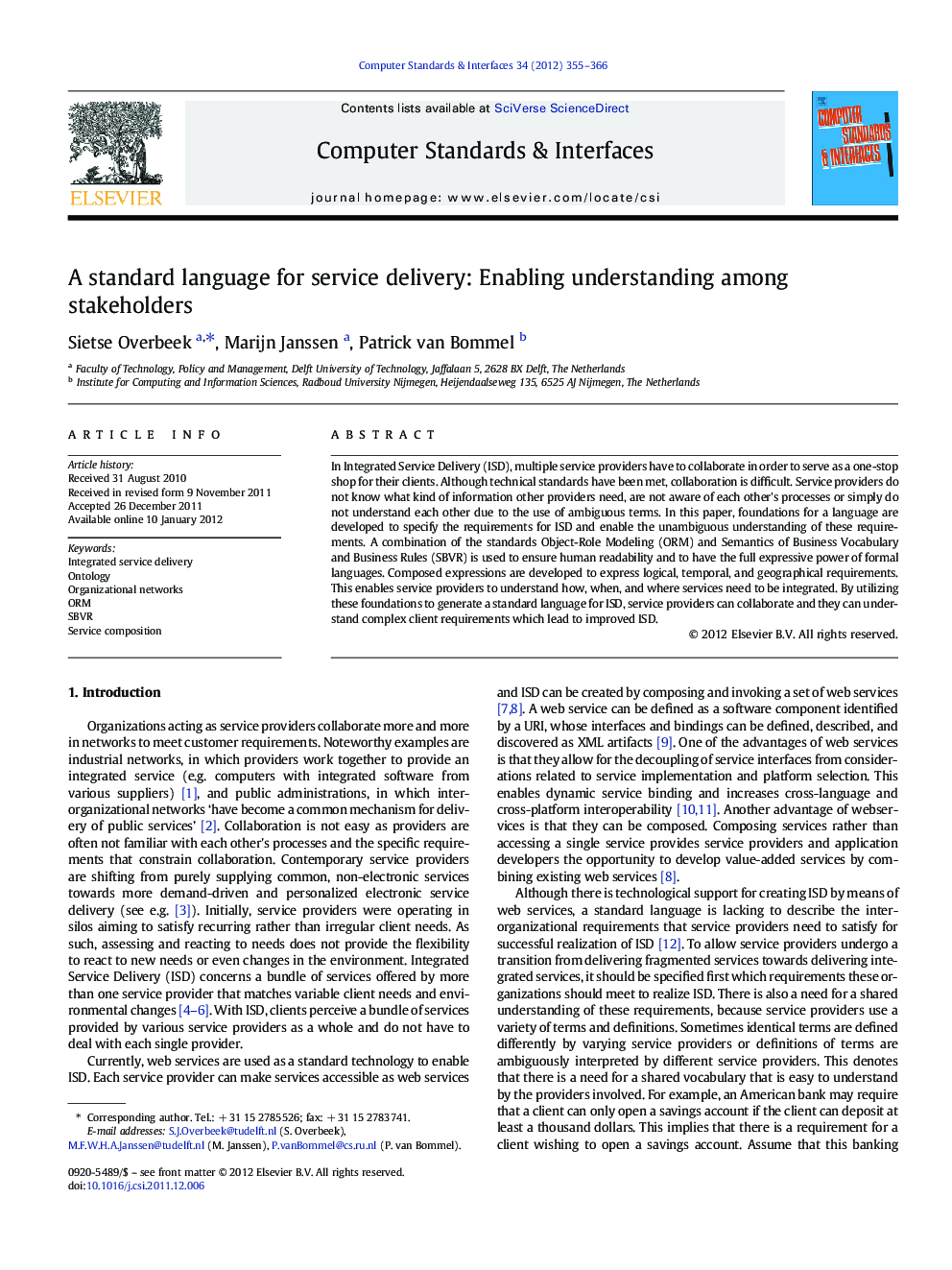| Article ID | Journal | Published Year | Pages | File Type |
|---|---|---|---|---|
| 454187 | Computer Standards & Interfaces | 2012 | 12 Pages |
In Integrated Service Delivery (ISD), multiple service providers have to collaborate in order to serve as a one-stop shop for their clients. Although technical standards have been met, collaboration is difficult. Service providers do not know what kind of information other providers need, are not aware of each other's processes or simply do not understand each other due to the use of ambiguous terms. In this paper, foundations for a language are developed to specify the requirements for ISD and enable the unambiguous understanding of these requirements. A combination of the standards Object-Role Modeling (ORM) and Semantics of Business Vocabulary and Business Rules (SBVR) is used to ensure human readability and to have the full expressive power of formal languages. Composed expressions are developed to express logical, temporal, and geographical requirements. This enables service providers to understand how, when, and where services need to be integrated. By utilizing these foundations to generate a standard language for ISD, service providers can collaborate and they can understand complex client requirements which lead to improved ISD.
► Foundations are developed to specify requirements for integrated service delivery. ► The foundations enable unambiguous understanding of these requirements. ► The foundations ensure both human readability and full expressive power. ► Composed expressions formulate logical, temporal, and geographical requirements. ► Improved collaboration and understanding of requirements leads to improved ISD.
